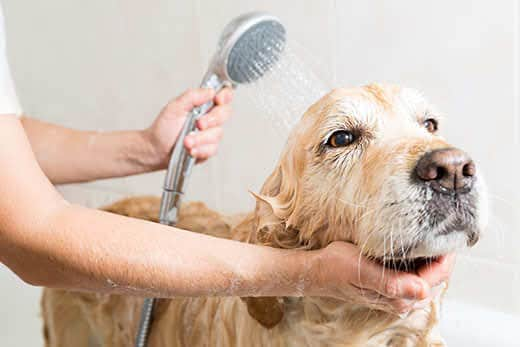
-
Find the right food for your pet
Take this quiz to see which food may be the best for your furry friend.
Find the right food for your pet
Take this quiz to see which food may be the best for your furry friend.
Featured products
 Adult 7+ Perfect Digestion Chicken, Whole Oats & Brown Rice Recipe Dog Food
Adult 7+ Perfect Digestion Chicken, Whole Oats & Brown Rice Recipe Dog FoodScience Diet's breakthrough nutrition supports ultimate digestive well-being & healthy microbiome for dogs age 7+
Shop Now Adult 7+ No Corn, Wheat, Soy Chicken & Brown Rice Dog Food
Adult 7+ No Corn, Wheat, Soy Chicken & Brown Rice Dog FoodSupports energy level and beautiful coat in mature dogs
Shop Now Adult Perfect Weight & Joint Support Chicken Recipe Dry Dog Food
Adult Perfect Weight & Joint Support Chicken Recipe Dry Dog FoodThis weight management and mobility support dog food was created with Hill’s unique understanding of the biology of overweight dogs.
Shop NowFeatured products
 Perfect Weight Salmon & Vegetable Canned Cat Food
Perfect Weight Salmon & Vegetable Canned Cat FoodOver 70% of cats lost weight within 10 weeks when fed this nutrition
Shop Now Adult Perfect Digestion Chicken, Barley & Whole Oats Recipe Cat Food
Adult Perfect Digestion Chicken, Barley & Whole Oats Recipe Cat FoodScience Diet's breakthrough nutrition supports ultimate digestive well-being & healthy microbiome
Shop Now Adult Savory Chicken Entrée Cat Food
Adult Savory Chicken Entrée Cat FoodPrecisely balanced nutrition with the delicious taste of savory minced chicken to help fuel the energy needs of cats during the prime of their life
Shop Now -
Dog
- Dog Tips & Articles
-
Health Category
- Weight
- Food & Environmental Sensitivities
- Urinary
- Digestive
- Joint
- Kidney
-
Life Stage
- Puppy Nutrition
- Adult Nutrition
- Senior Nutrition
Cat
- Cat Tips & Articles
-
Health Category
- Weight
- Skin & Food Sensitivities
- Urinary
- Digestive
- Kidney
-
Life Stage
- Kitten Nutrition
- Adult Nutrition
Featured articles
 The Incredible Science Behind Your Pet's Microbiome
The Incredible Science Behind Your Pet's MicrobiomeLearn what a pet's microbiome is, how it contributes to your pet's gut & overall health, and why nutrition is important in maintaining healthy microbiomes.
Read More Water
WaterDiscover why water is the most important nutrient for your dog or cat to live a healthy life. Find out how much water your pet should consume each day.
Read More Pet Food Storage Tips
Pet Food Storage TipsDiscover how and where to store your dry, as well as canned, dog and cat food. Learn how to find the "best before" dates on all Hill's pet food packaging.
Read More -
Find the right food for your pet
Find the right food for your pet


When summer arrives, you may find more dogs swimming happily at the beach, playing in kiddie pools or even frolicking near a sprinkler. If you're thinking, "My dog is afraid of water; they would never do that," you're not alone. Some pet parents may not even know how to bathe a dog who is afraid of water, let alone encourage them to swim. Use this guide to help you understand how to get your dog feeling safe around water.
Why Are Some Dogs Afraid of Water?
There are many reasons why dogs may be fearful of water. It could simply be that it's a new experience for them or that the water feels different under their paws or on their fur. Your pet may have also had a traumatic experience with water. Or, maybe they were forced to get wet when they weren't ready. If you're thinking your dog is afraid of water but don't know how to help, the first step is simply helping your dog unlearn any negative water connotations. Then, you can slowly acclimate your pet to the water until they feel safe enough to bathe or swim on their own terms.
How to Bathe a Dog Who Is Afraid of Water
Ideally, you should begin bathing your dog when they're a puppy — first with a washcloth and then eventually in an indoor or outdoor bath. However, if your dog already has a phobia of bathing, you'll need to train them to unlearn some of those fears before you can successfully bathe them. Use these steps to get started:

- Get your dog comfortable with being leashed in your home.
- Bring your pet into the bathroom for playtime with a closed door.
- Once your dog is able to be in the room without fear, encourage them to sit on a non-slip mat in the tub. Don't run the water, but do make sure to reward your pet for their courage!
- After doing this a few times, turn on the water in the tub while you're playing with your dog on the floor, so that they get used to the sounds as well.
- Finally, lead your pet into a tub filled with only a small amount of water.
These steps may take some time, but it's really about unlearning the fear and gaining confidence before trying again.


Tasty Tips
How to Get Your Dog Comfortable With Swimming
Once your dog feels safe in bath water, you might start thinking about acclimating them to larger bodies of water, like a pond or the ocean. But, to do so, you'll need to teach your furry friend how to swim safely. It's also important to remember that some breeds are born for the water, while others aren't suited to be strong swimmers. For example, the Labrador retriever, Irish water wpaniel and the Portuguese water dog all have traits to that make them well suited to the water. On the other hand, the short-legged Chihuahua and brachycephalic breeds, such as boxers, may need more assistance. Or, you may find that your pup just doesn't enjoy swimming and prefers land life much more.
To get started, you'll want to order an assistive device to ensure your pet's safety. According to the American Kennel Club, "Regardless of breed, all dogs should wear a life jacket when first learning to swim." Look for a vest with built-in handles so that you can help pull your pet out of the water if necessary. Just like with children's flotation devices, fit is important for safety, so make sure the life jacket you choose for your pet fits accordingly to their weight and length.
Here's how to start training your dog to play in deeper waters:
- Start small, and never throw them into the water.
- Walk with your pet along the shore to get their feet wet.
- Then, slowly head in a little deeper, but stay in shallow water.
- Reward your pet with healthy treats.
- When you feel your pet is comfortable, head out just slightly deeper so that instead of walking, your dog will need to swim a short distance to reach you.
Take each of these steps slowly and over time you'll have a confident swimmer. And remember, just like with bathing your dog, this is not a one-day training activity. You'll need to plenty or safe, comfortable practice time to get your pet swimming confidently.


Erin Ollila believes in the power of words and how a message can inform—and even transform—its intended audience. Her writing can be found all over the internet and in print, and includes interviews, ghostwriting, blog posts, and creative nonfiction. Erin is a geek for SEO and all things social media. She graduated from Fairfield University with an M.F.A. in Creative Writing. Reach out to her on Twitter @ReinventingErin or learn more about her at http://erinollila.com.
Related products

Delicious braised beef paired with tender vegetables in a succulent stew

This weight management and mobility support dog food was created with Hill’s unique understanding of the biology of overweight dogs.

Science Diet's breakthrough nutrition supports ultimate digestive well-being & healthy microbiome for dogs age 7+

Supports energy level and beautiful coat in mature dogs
Related articles

Proper nutrition for your pregnant or nursing dog is vital to her and her puppy's health. Learn what you should do provide her with the proper nutrients.

Learn about Hill's puppy food and the nutritional benefit & high quality ingredients that it contains for your pup.

Understand the role that Omega-6 and Omega-3 fatty acids play in your dog's overall health, and how you can ensure they are getting enough.

Large and giant breed puppies have different nutritional needs than other dogs. Learn how to provide the special care they need to grow up big and strong.

Put your dog on a diet without them knowing
Our low calorie formula helps you control your dog's weight. It's packed with high-quality protein for building lean muscles, and made with purposeful ingredients for a flavorful, nutritious meal. Clinically proven antioxidants, Vitamin C+E, help promote a healthy immune system.
Put your dog on a diet without them knowing
Our low calorie formula helps you control your dog's weight. It's packed with high-quality protein for building lean muscles, and made with purposeful ingredients for a flavorful, nutritious meal. Clinically proven antioxidants, Vitamin C+E, help promote a healthy immune system.

